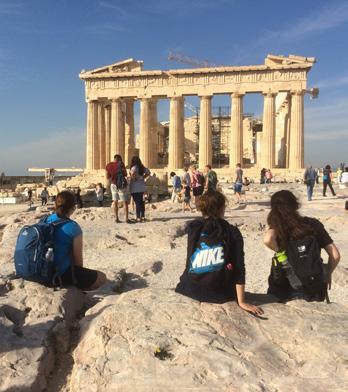
1 minute read
Classical Civilisation
Why study Classical Civilisation?
There is something in the Classical world to interest everyone. Classics has had a huge influence on our society and language: religion, entertainment, philosophy and politics all have their basis in the Classical world. You will learn about myths and monsters; how Athenian Government changed the face of politics; how a Roman city ran 2000 years ago, and how entertainment has not changed as much as we might think over time. You will study sources including Classical literature, architecture and art. You will broaden your understanding of the social, cultural and political beliefs of the Classical world and their continuing influence on later times.
Advertisement
You will develop valuable transferable skills such as questioning and analysis, literary criticism, and an appreciation of changing societies. It is an excellent opportunity to develop more familiarity with Classical references that are prevalent in literature and language.
A GCSE in Classical Civilisation can complement History, English, Drama, Art and Religious Studies amongst others. There is no Latin or Classical Greek as part of this GCSE. The qualification is looked upon favourably and paves the way for careers in areas such as law, journalism, politics and the media, and you will always have something interesting to talk about.
Course enrichment includes theatre trips and a visit to the British Museum. The department regularly runs trips to Greece, Italy and beyond.

How is the course examined?
Examination
Each component has a written examination of 1 hour 30 minutes.
What does the course cover?
The course is divided into two parts, each with an examination of 1 hour 30 minutes:
Thematic Paper: Women in the Ancient World OR Myth and Religion (50%)
A comparative study of Ancient Greece and Rome. You will look at literary, visual and material sources in order to gain a deeper understanding of the topic.
Literature & Culture: Roman City Life (50%)
An in-depth cultural study of relevant literature in translation to discover how the Romans lived.



